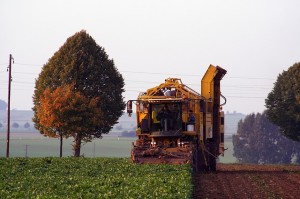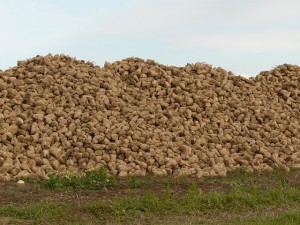The decision to close Ireland’s last remaining sugar factory at Mallow was made in March 2006 as an outcome of reform to the EU sugar regime. It ended an 80 year history of sugar production, affecting some 3,700 sugar beet growers and over 300 employees.
European sugar production is now concentrated in six major companies, Europe is no longer self-sufficient and has to import 15% of its needs.
In 2010 the findings of the EU Court of Auditors showed that the Closure of the Irish Sugar Industry may have been unnecessary and that the EU were using information that was out of date in the reforms enacted. It is clear from the Auditors report that the Sugar plant in Mallow was profitable and efficient

Michael Hoey, chairman of Beet Ireland has indicated that Ireland currently imports 300 million worth of sugar. By reviving the sugar beet industry these imports can be replaced by local production. Local sugar beet production has many benefits, for local employment, as an income source for farmers and also a great animal feed. It would also provide security of sugar supply for enterprises where sugar is a main ingredient. It could also be used for the creation of a Bio-ethanol Industry
It looks likely that there will be EU agreement to abolish quota restrictions by 2017, this will provide Ireland with opportunity to re-enter sugar processing. Much work has been done by some County Councils to identify sites and to provide necessary supports to Beet Ireland. It appears that there has been little input (if any) from Kerry County Council in formatting any proposals to Beet Ireland, this is in contrast to Cork County Council that has put forward four sites.
I propose that Rathmore be suggested as a suitable site as it has access to water from the Blackwater and has access to the rail network. In the event of Rathmore not been  deemed a suitable location for a beet factory, we should collaborate with Cork County Council to ensure a plant is secured for Mallow as this would provide jobs to the people of East Kerry and also provide Kerry farmers with a much needed income source..
deemed a suitable location for a beet factory, we should collaborate with Cork County Council to ensure a plant is secured for Mallow as this would provide jobs to the people of East Kerry and also provide Kerry farmers with a much needed income source..















